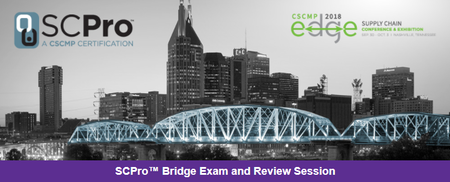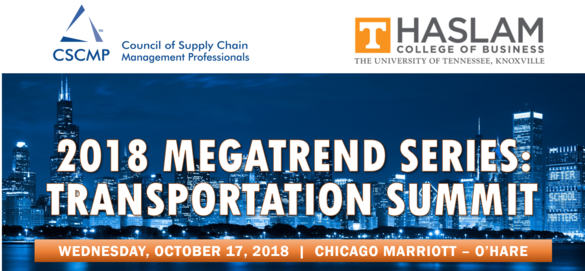 |
||||||||||||||||||||||||
| Archive | Subscribe | Printer Friendly | Send to a Friend | cscmp.org | ||||||||||||||||||||||||
|
Current News
The transportation industry has a long history of resisting all but the most essential innovations. In the face of security threats, logistics inefficiencies, and general uncertainty and volatility, transportation companies have moved at a snail’s pace – if at all – to digitize processes and incorporate emerging technologies. Transportation companies are realizing the status quo is no longer sustainable. Blockchain is a natural fit for inherently fragmented industries, such as transportation, in which close coordination with multiple parties is essential. A distributed ledger technology, blockchain provides a more transparent and secure way to conduct business, resulting in immutable transaction records, finality in tracing ownership and payment, and substantially improved coordination and efficiency. It has the potential to mitigate some of the transportation industry’s most persistent challenges. About the authors: Keith W. Dierkx is IBM Executive Director and Global Industry Leader for Freight, Logistics and Rail and a member of the IBM Industry Academy. Stephen Rogers is the IBM VP of Blockchain Initiatives for Supply Chain responsible for implementing Blockchain technology within IBM.
CSCMP took over the Nashville airwaves twice in August, and if you didn't get a chance to listen, now is your opportunity! In the first airwaves takeover, the CSCMP Nashville roundtable joined Hippie Radio for a live segment on 8/7/18. During the show they discussed the supply chain industry, as well as focusing on the rapidly growing supply chain footprint in Nashville, Tennessee. They also discussed the upcoming EDGE Conference, which is being hosted at the Gaylord Opryland this year Sept. 30-Oct. 3, 2018 In the second airwaves takeover, CSCMP academic member and University of Tennessee Professor Ted Stank joined Hippie Radio for a live segment on 8/24/18. During the show Ted shared his personal CSCMP journey and shared how the University of Tennessee is preparing students for today's supply chain. CSCMP Awards and Recognition
Connect
CSCMP and Penske Logistics invite you to join A.T. Kearney, the author of the 29th Annual Council of Supply Chain Management Professionals State of Logistics Report®, and this year's panel to hear the highlights and trends emerging from this year’s report titled, Steep Grade Ahead. The report has tracked and measured all costs associated with moving freight through the U.S. supply chain since 1988 and presents an overview of the economy during the past year, the logistics industry’s key trends, and the total U.S. logistics costs for 2017. This session will present an industry update since the report's release in June 2018, and will feature an interactive dialogue with a panel comprised of report contributors and industry leaders. Prepare for the session and download your copy of the report today. A special word from Mike White, Head of TradeLens and CEO of Maersk GTD Inc. In August we launched TradeLens, an open and neutral industry platform underpinned by blockchain technology. TradeLens enables the efficient, predictable and secure exchange of information between parties and allows each and every actor in global supply chains to become part of the solution and gain value from day one. As someone who’s been in the transportation industry for a long time I have seen first-hand the many challenges faced by all entities involved in global trade. I believe TradeLens will become a great solution to many of our biggest challenges, from transport blind spots to data inconsistencies to custom clearance processing. I’m coming to CSCMP Edge this year to discuss the platform in greater detail. I encourage you to swing by our session, "TradeLens: A Blockchain Solution to Serve the Entire Supply Chain" at 10:30 on Tuesday October 2. You can also find our team at the IBM Innovation Zone demoing TradeLens on site. Mike White Head of TradeLens and CEO of Maersk GTD Inc. National Motor Carrier Hiring Standard What it is: Currently there is no standard in place to ensure that motor carriers who have been deemed unsafe to operate are no longer utilized. The National Hiring Standard would promote safety in the transportation industry and enhance interstate commerce. Background: Shippers and 3PLs are asked to second-guess the Federal Motor Carrier Safety Administration (FMCSA) on determining which carriers are safe to operate and those that are not. The Transportation Intermediaries Association (TIA) has led this charge for the past few years attempting to get Congress to require the Department of Transportation (DOT) to publish guidelines that specifically outline how motor carriers can be placed out-of-service. The TIA supported legislation has been introduced the last two Congresses, as TIA and many other industry stakeholders look to clarify interstate commerce and clear up the confusion in the marketplace surrounding safety data What it will do: The language in the bill will require that within 45 days prior to tendering a load to a motor carrier, a shipper, 3PL, broker, forward, and/or receiver verify that the motor carrier:
What it won’t do: The language does not reduce an individual’s legal recourse to sue a shipper or 3PL to exclude any data from being used as evidence. If the hiring standard is completed, the bill would prohibit any CSA, SMS, or other “data” from being used as evidence against an entity in a civil action for damages resulting from a claim of negligent selection or retention of such motor carrier. Where it stands: The language was included in the House-passed Federal Aviation Administration (FAA) Reauthorization Act with bi-partisan support. Congressman Jimmy Duncan (R-TN) along with Congressmen Rodney Davis (R-IL), Erik Paulsen (R-MN), and David Rouzer (R-NC) introduced the bill that would enhance interstate commerce by creating a national hiring standard for motor carriers. The TIA supported legislation has been introduced the last two Congresses, as TIA and many other industry stakeholders, including NASSTRAC, look to clarify interstate commerce and clear up the confusion in the marketplace surrounding safety data. Why you should care: With the onset of CSA (Compliance, Safety, Accountability) in 2010, there was an onslaught of vicarious liability suits filed against 3PL’s and shippers claiming that the shipper/3PL did not exercise due diligence in hiring a motor carrier. Without a national hiring standard, each state is left to their own devices and interpretations of what due diligence in motor carrier hiring should be.
About the Outlook Report About IHS Markit (www.ihsmarkit.com)
By Supply Chain Quarterly Staff
E-commerce sites have found that flash sales can be an effective way of getting rid of excess inventory. But setting the right price and forecasting the success of these sales is difficult. A new model may help. THE UPSHOT Flash sales occur when an e-commerce site sells a set quantity of inventory at a discount for a short period of time or until the stock runs out. The technique forms the central business model for standalone sites such as Zulily, Rue La La, and Gilt Groupe in fashion, and Woot in electronics. It is also used as a sales mechanism for general retailers. For example, Amazon uses it during its Amazon Prime Day. Flash sales have proven to be an effective way of getting rid of excess inventory, but it can be hard to forecast demand for these sales and determine the right price for the items. Companies that do not get these issues right in the first place, before the sales go live, may struggle to make a profit and may even incur losses. According to Anníbal Sodero from the University of Arkansas and Elliot Rabinovich of Arizona State University, one factor that has a big impact on the speed and success of flash sales is consumer opinions or reviews of the product on online discussion forums. The two discovered that consumer opinion was a good predictor of how long it would take to sell out the inventory – and therefore how profitable the retailer would be. In order to effectively set prices prior to the selling period, companies should use forecast models that account for these interactions among shoppers, they argue. As an example of how to do this, Sodero and Rabinovich adapted a well-known demand forecasting model called the "Bass demand growth model" to incorporate online consumer discussion forum posts. To create the model, they drew on seven years of data provided by a major retailer that uses flash sales. Sodero explained to Supply Chain Quarterly Executive Editor Susan K. Lacefield what he and Rabinovich discovered about flash sales markets (FSM) and how companies can apply these findings. Training and Development
For more information on their supply chain, logistics engineering or workforce training programs, click here, or contact: John Sherwood, Program Coordinator at jsherwood4@cscc.edu or 614.287.2205 For the first-time ever at EDGE 2018, CSCMP will be hosting a review and live examination for the SCPro™ Certification Bridge Exam. The SCPro™ Bridge Exam is for professionals who have a supply chain certification or an advanced degree and allows them to take an abbreviated version of the SCPro™ Level One Exam to achieve SCPro™ Level One Certification and advance to SCPro™ Level Two. Edge Conference
Companies of all sizes and across all industries find themselves struggling to find capacity and manage escalating costs. Yet, this is not the first time that supply and demand have been significantly out of equilibrium. To complicate matters, the transportation perfect storm is happening at a time when most companies are also in a supply chain digitalization transformation process. Yet, results from the 27th Annual Study on Transportation and Logistics Trends & Issues indicate that more than half of the study participants consider their companies to be slow adopters, laggards or nonparticipants in digital transformation. How did we get to this current state? Is it because things are different this time? After all, the tools and technologies available have never been more powerful or readily accessible by companies of all sizes. Or perhaps it’s because technology alone is not sufficient. Results from the annual study referenced above supports this proposition. The findings from the study indicate some of the biggest barriers include: • An organizational structure that is not collaborative; • Moving too slowly due to a cultural aversion to risk; • Lack of understanding of the technology’s impact; • Lack of strategic direction; and • Insufficient talent and training. A reactive response to the current state in transportation will not lead to sustainable competitive advantage, nor will it improve firm performance in the short- or long term. The difference between a reactive versus a proactive response to the current transportation conflagration is the former usually is built on hope. Hope that capacity issues and the underlying forces that created this situation will change shortly – just as they have in the past. However, as Vince Lombardi is credited with saying "hope is not a strategy." The big question is whether we are willing to work together to chart a proactive course that isn’t built on hope CSCMP and the Haslam School of Business at the University of Tennessee will be hosting an exclusive one-day transportation summit where you will be able to hear from some of the most recognized companies in the world today, and discover how they are tackling the transportation conundrum and preparing for the future of transportation in the supply chain. Attend and learn how to best position your organization, as we have structured the day around discussions to provide the highest ROI for you. Attend this one-of-a-kind event and explore what some companies are doing to navigate today’s challenging transportation market. Event seating is limited. Register today and take advantage of this opportunity to get the latest in transportation from leaders and experts in the field. E-commerce has redrawn the logistics map, and the phenomenon is in its early stages. As more goods are ordered online, the ability to master your parcel shipping strategy will become more important than ever. Consumers expect free or very low-cost shipping, yet parcel carriers expect to be paid for their services. Shippers will need to balance the demands of their customers with the realities of their shipping budgets. In this webinar, you will learn how to manage and master the unprecedented challenges of parcel shipping. You will hear how to: • Leverage the U.S. Post Office as a viable delivery alternative. • Capitalize on the opportunities of cross-border e-commerce. • Prepare your business for the upcoming peak season. • View Amazon as a partner, not a competitor. • Cope with changes in how UPS and FedEx price their services. • E-commerce will forever change warehouse and distribution center design. Wednesday, Sept. 19, 2018 1:00 pm - 2:00 pm EDT Project Zipper, an EPC-enabled Item Level RFID Supply Chain - Brand Owner / Retailer Data Exchange Study, took a hands-on investigatory approach to analyzing and evaluating the benefits of using EPC/RFID technology in retail. This webinar will provide a summary of Phase 1 study findings. This data capture/sharing study, included participation from 14 retail trading partners (eight brands and five retailers). It looked at pick/pack accuracy, outbound receiving/inbound order consensus reconciliation, and the impact of achieving order matching accuracy. The study’s purpose was to survey the effectiveness and business value of item level RFID tagged items, as they travel though the brand owner’s value chain (with a specific focus on fulfillment centers) through to a retailer. Tuesday, Sept. 25, 2018 2:00 pm - 3:00 pm EDT Protect your brand by providing safe and fresh food with effective traceability. Whether you’re just starting to kick your traceability program into high gear or preparing for the promise of blockchain, this webinar will provide a roadmap to help you: • Establish the right foundation with unique identifiers for your products and locations • Select the tools and resources you need to implement case-level traceability with GS1-128 barcodes • Understand the value of supply chain visibility to extend the benefits to operational savings and e-commerce success Thursday, Sept. 27, 2018 2:00 pm - 3:00 pm EDT Roundtables
Supply chains are transforming, becoming more effective and efficient due to digital technologies. We evolve them by creating integrated supply chains with our value networks: customers, suppliers and partners, and exchanging data with them, thereby increasing the transparency of the entire supply chain.
Date: Oct. 17, 2018 Location: Barcelona, Spain
How would you respond to a crisis if your business supplied items desperately needed after a disaster? If you worked for a non-profit, could you ensure disaster survivors received everything they needed? What if you were a government employee charged with managing logistics for emergencies?
This game-based session puts you in the role of a business, non-profit, or government organization working to deliver critical commodities to a community following a disruptive event. You’ll race against time to keep supplies moving while confronting challenges common to disaster. Performance metrics will be reviewed using data visualizations, and attendees will explore strategies for addressing real world supply chain risks simulated during the session. Attendees should bring a WiFi enabled smartphone or tablet to participate in this session. Attendees should bring a WiFi enabled smartphone or tablet to participate in this session. Date: Oct. 18, 2018 Time: 9:00 am - noon CDT
We have an awesome panel of industry leaders that will give a detailed overview of what blockchain is, how it can be applied in the supply chain and the obstacles to implementation. They will take questions from the audience and have an open dialogue on this transformative topic. Panelists include the following: Emil Lebovich - Intelligent Audit, CTO Sloan Brakeville - FR8, CEO/Founder Dan Gardner - VP Supply Chain, Lakeshore Leaning Materials
Date: Oct. 18, 2018 Time: 3:00 pm - 6:00 pm CDT |
||||||||||||||||||||||||


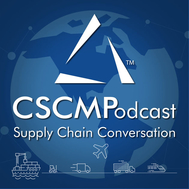

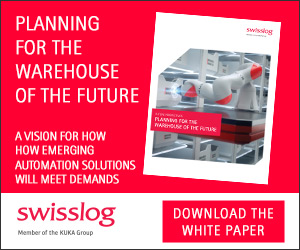
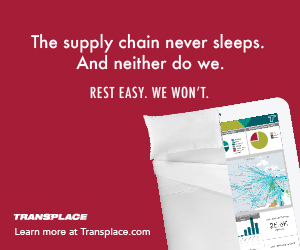
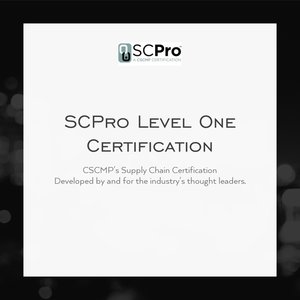


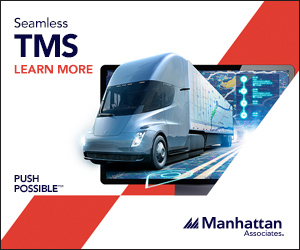



.png)

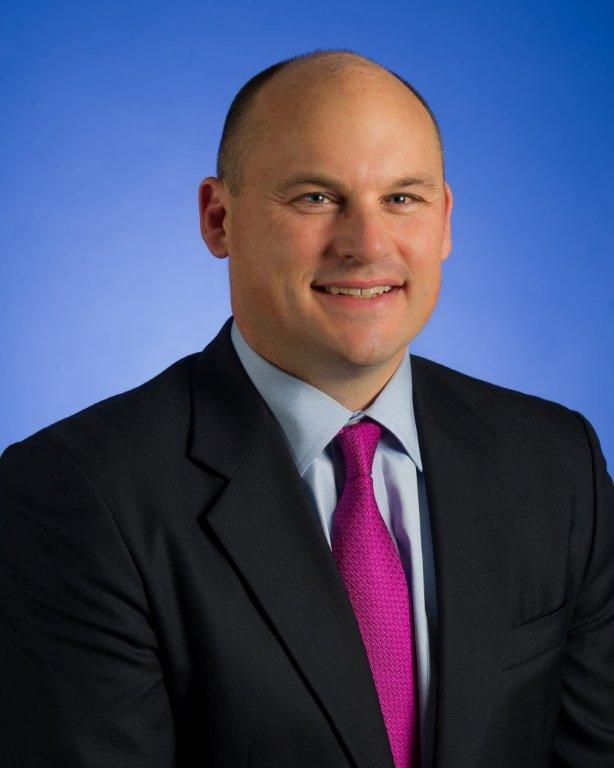 By Brendan O’Neil, Executive Director, IHS Markit
By Brendan O’Neil, Executive Director, IHS Markit
